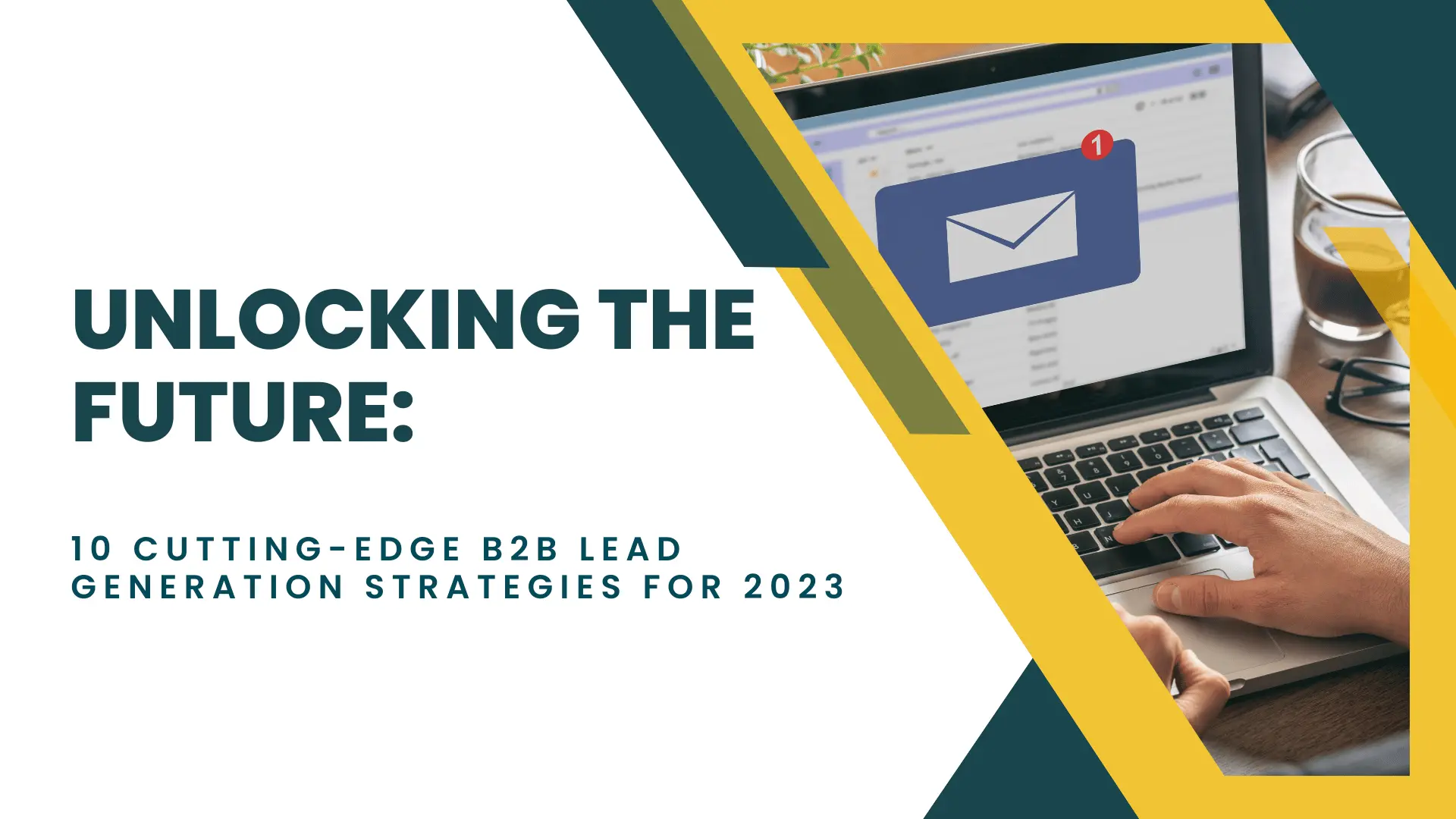Top 10 B2B Lead Generation Strategies for 2023
 Published by Bulk Mail Verifier
Published by Bulk Mail Verifier
In the dynamic field of B2B marketing, staying ahead requires adopting innovative strategies. As businesses adapt, B2B lead generation is evolving, adopting a more personalized and data-driven approach. This article explores the most impactful lead generation strategies of 2023 that are reshaping the marketing landscape. Let's dive into these strategies and understand how they can enhance your marketing efforts.
What Is B2B Lead Generation?
B2B lead generation is the process of identifying, attracting, and developing potential business customers interested in a company's products or services. Unlike B2C marketing, which targets individual consumers, B2B marketing focuses on building relationships and converting businesses into customers. The goal is to attract high-quality leads likely to convert into long-term customers by understanding their unique needs and challenges.
Top B2B Lead Generation Strategies of 2023
1. Account-Based Marketing (ABM)
Account-based marketing (ABM) focuses on specific high-value target accounts, allowing for hyper-personalization. By aligning marketing and sales teams, businesses can create campaigns that resonate with decision-makers, improving conversion rates and nurturing long-term relationships.
2. Purpose-Driven Content Marketing
Content marketing has evolved to focus on providing valuable content that meets the target audience's needs. Interactive content like quizzes and webinars engages potential customers and provides a personalized experience.
3. Predictive Analytics Powered By AI
AI transforms B2B lead generation by enabling predictive analytics, helping marketers predict which leads are likely to convert. AI-based lead scoring prioritizes efforts on high-quality leads, enhancing the efficiency of sales teams.
4. Social Selling And Relationship Nurturing
Social media platforms like LinkedIn are powerful tools for lead generation and relationship building. By engaging in meaningful conversations and sharing relevant content, businesses can position themselves as thought leaders and connect with decision-makers.
5. Personalized Email Campaigns
Email marketing remains effective, with personalization at its core. Segmentation and targeted messaging increase engagement and conversion rates. Use an email checker to ensure your email list's validity and improve deliverability.
6. Chatbots And Conversational Marketing
Chatbots provide real-time interaction with potential customers, offering immediate responses and guiding them through the decision-making process. Balancing automation with a human touch ensures a positive user experience.
7. Influencer Partnerships
Collaborating with influencers and industry experts enhances credibility and reach. Co-creating content with influencers, such as webinars and podcasts, generates high-quality leads and positions businesses as industry leaders.
8. Referral Marketing
Referral marketing leverages personal recommendations to generate leads with a higher trust level. Encouraging satisfied customers and partners to refer potential customers can significantly impact lead generation efforts.
9. Video Marketing
Video content simplifies complex product explanations and fosters emotional connections, leading to higher engagement and conversion rates.
10. Intent Data And Predictive Analytics
Using intent data and predictive analytics provides insights into prospects' behavior and preferences, allowing for more targeted marketing efforts and improved lead quality.
Conclusion
Business-to-business marketing in 2023 emphasizes personalization, data-driven insights, and meaningful relationships. Implementing these strategies, including using an email checker for email validation, ensures successful lead generation efforts. As the landscape evolves, these approaches will drive sustainable growth and connections in the B2B domain. Visit BulkMailVerifier.com to enhance your email marketing campaigns with reliable email validation services.